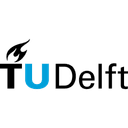This course is part of Sustainable Packaging.
Transform your approach to packaging design with this comprehensive course on circular economy principles. Learn to create sustainable packaging systems that minimize waste and maximize resource efficiency. Explore innovative design strategies, renewable materials, and business models that support closed-loop systems. Study real-world case studies from industry leaders and discover how to capture value from packaging waste while reducing environmental impact. The course emphasizes practical applications of circular economy concepts in packaging design.
4.4
(5 ratings)
20,752 already enrolled
Instructors:
English
English
What you'll learn
Apply circular economy principles to packaging system design
Develop closed-loop packaging solutions that minimize waste
Implement sustainable business strategies for packaging systems
Explore opportunities with renewable and bio-based materials
Analyze best practices through industry case studies
Create packaging designs that maximize resource efficiency
Skills you'll gain
This course includes:
PreRecorded video
Graded assignments, exams
Access on Mobile, Tablet, Desktop
Limited Access access
Shareable certificate
Closed caption
Get a Completion Certificate
Share your certificate with prospective employers and your professional network on LinkedIn.
Created by
Provided by

Top companies offer this course to their employees
Top companies provide this course to enhance their employees' skills, ensuring they excel in handling complex projects and drive organizational success.





Module Description
This course provides a comprehensive introduction to sustainable packaging design within a circular economy framework. Students learn to apply circular design principles to create closed-loop packaging systems that minimize waste and maximize resource efficiency. The curriculum covers innovative design strategies, renewable materials selection, and business models that support sustainability. Special emphasis is placed on real-world applications through case studies with industry leaders.
Fee Structure
Individual course purchase is not available - to enroll in this course with a certificate, you need to purchase the complete Professional Certificate Course. For enrollment and detailed fee structure, visit the following: Sustainable Packaging
Instructors

11 Courses
Pioneer in Sustainable Design and Circular Economy
Conny Bakker serves as Professor of Design Methodology for Sustainability and Circular Economy at TU Delft's Faculty of Industrial Design Engineering, where she combines research, teaching, and practical application to advance circular economy principles in product design. Her research portfolio focuses on developing innovative design methods for circular and sustainable product-service systems, particularly emphasizing products with multiple lifecycles through strategies including life-extension, reuse, remanufacturing, and recycling. As coordinator of several courses in Sustainable Design and Circular Product Design, she explores the crucial relationships between consumer behavior, sustainability, and design while leading the Design for the Circular Economy master class that helps professionals implement circular principles in their work. Her influence extends beyond academia through practical frameworks and methodologies that help businesses transition from linear to circular economy models, with particular attention to user-centered sustainable design that fosters lasting relationships between users and products. Through her work, she continues to shape the field of sustainable design by developing practical tools and approaches that bridge the gap between theoretical circular economy principles and their real-world implementation, while maintaining focus on both environmental impact and economic viability.

6 Courses
A Pioneering Expert in Circular Product Design and Sustainable Innovatio
Professor Ruud Balkenende has established himself as a leading authority in Circular Product Design at TU Delft's Faculty of Industrial Design Engineering, where he investigates product design strategies for circular economy recovery pathways. His academic journey began with a PhD focusing on copper in automotive exhaust catalyst materials, followed by a significant tenure at Philips Research from 1990, where he worked at the intersection of technological innovation and business applications. His research focus shifted in 2009 to address critical issues of materials scarcity and product recyclability, emphasizing the connection between product architecture and resource efficiency. Since 2013, he has expanded his scope from recyclability to broader circular economy principles, concentrating on functional reuse of products and components rather than just material recovery. As editor of recent publications on repair in the circular economy and leader in sustainable design education, he continues to advance the field through developing design methods that enable multiple product lifecycles, exploring circular design strategies, and investigating business models that support product life-extension, reuse, remanufacturing, and recycling.
Testimonials
Testimonials and success stories are a testament to the quality of this program and its impact on your career and learning journey. Be the first to help others make an informed decision by sharing your review of the course.
Frequently asked questions
Below are some of the most commonly asked questions about this course. We aim to provide clear and concise answers to help you better understand the course content, structure, and any other relevant information. If you have any additional questions or if your question is not listed here, please don't hesitate to reach out to our support team for further assistance.



